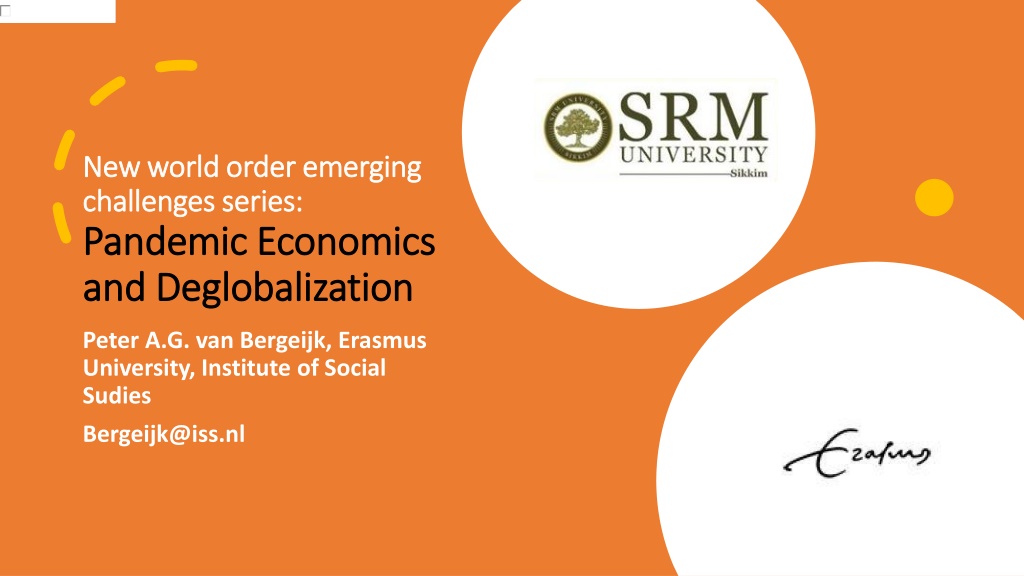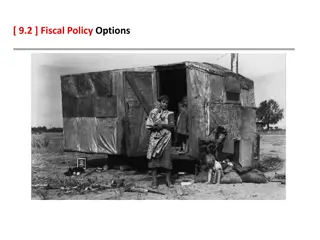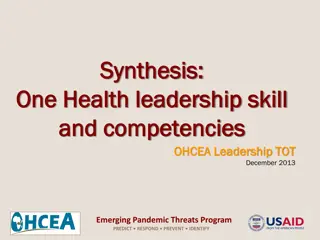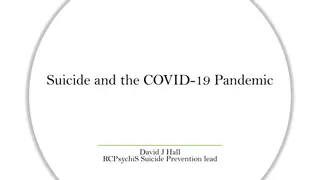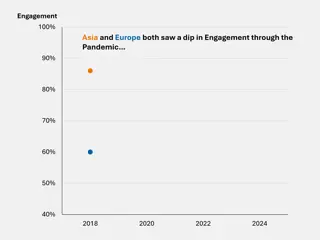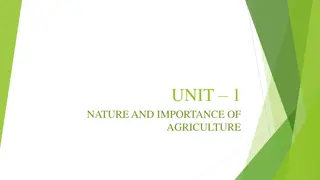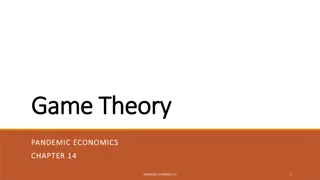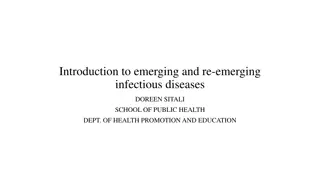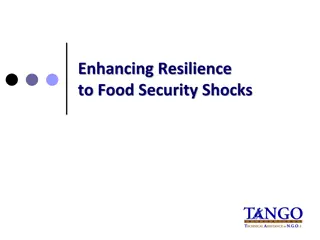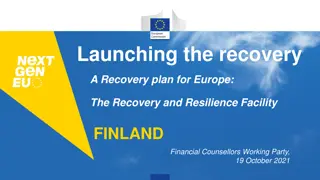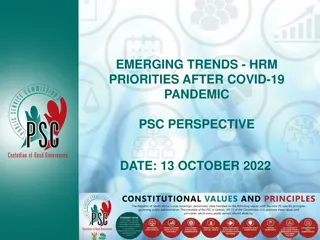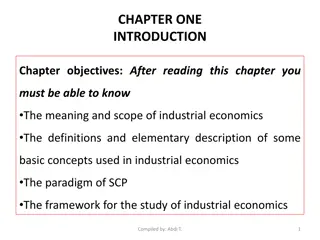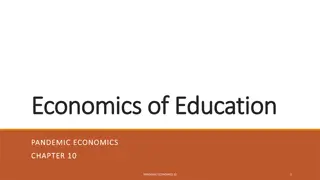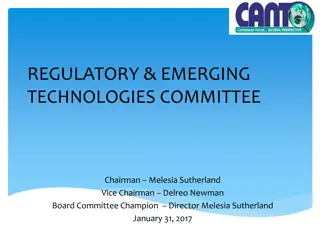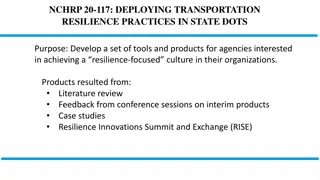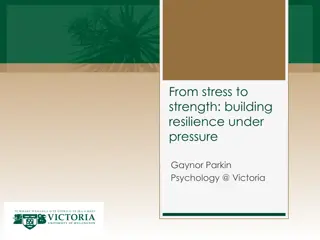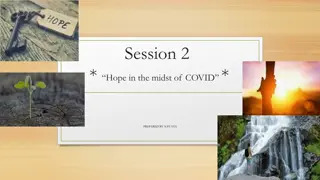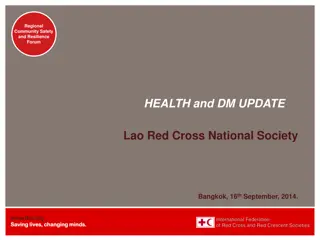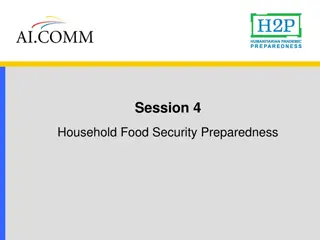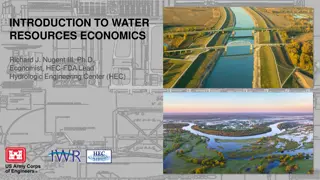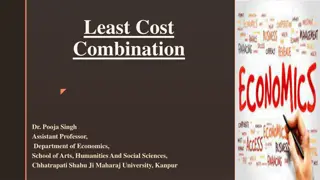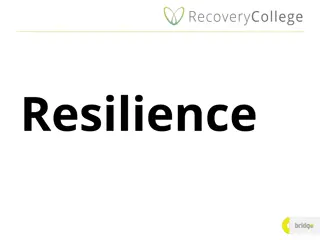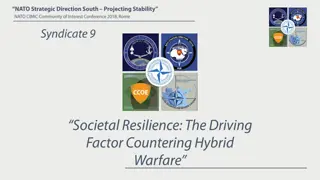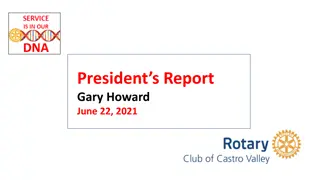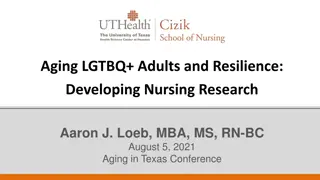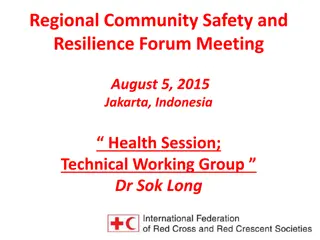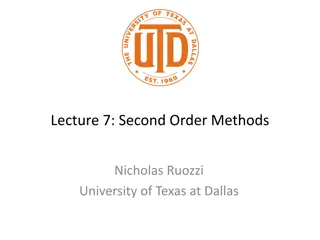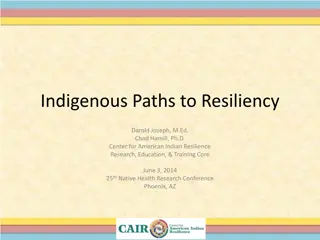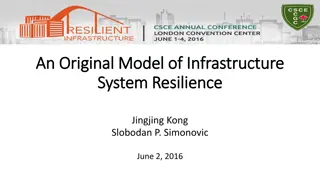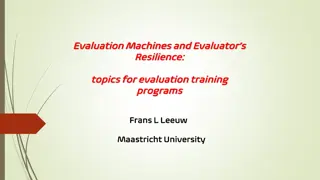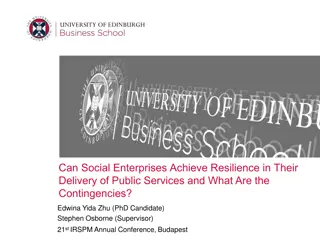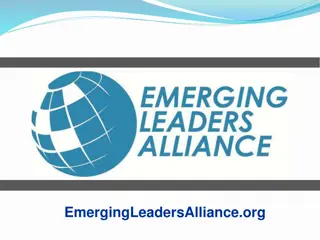Challenges and Resilience in the Emerging New World Order: Pandemic Economics and Deglobalization
The emerging challenges in the new world order, including pandemic economics and deglobalization, are increasingly shaping global dynamics. Resiliency is highlighted as a key factor in addressing future crises, emphasizing the need for a multidisciplinary approach to tackling ruin problems like pandemics. The impact of structural vulnerabilities on global events, such as Brexit, Trump, COVID-19, and Putin, is discussed in depth. Additionally, the evolution of world trade, contractions, and the importance of addressing structural issues are emphasized.
Download Presentation

Please find below an Image/Link to download the presentation.
The content on the website is provided AS IS for your information and personal use only. It may not be sold, licensed, or shared on other websites without obtaining consent from the author. Download presentation by click this link. If you encounter any issues during the download, it is possible that the publisher has removed the file from their server.
E N D
Presentation Transcript
New world order emerging New world order emerging challenges series: challenges series: Pandemic Economics Pandemic Economics and Deglobalization and Deglobalization Peter A.G. van Bergeijk, Erasmus University, Institute of Social Sudies Bergeijk@iss.nl
My key points in 60 seconds My key points in 60 seconds The world order is being challenged, but Brexit, Trump, COVID & Putin are symptoms, not the cause of deglobalization. Resiliency has increased and is the key to solving future problems ----------------------------------------- A pandemic is a ruin problem that needs do be addressed multi-disciplinary The policy analysis has been predominantly national, mono- disciplinary and mono-COVID-19 The world cannot afford the same approach to the next pandemic and needs to address structural issues that determine vulnerability and impact Pandemics Putin Delobalization 4/11/2022 2
Contents Contents 1. Deglobalization and COVID-19 trade perspective 2. Pandemic economics a) Outline of the book b) Ruin problem c) Pandemic Trilemma d) Economics e) Lessons 3. Different Prescriptions 4. What to do? 4/11/2022 Pandemics Putin Delobalization 3
Openness of the world economy Openness of the world economy (1880-2023 world merchandise trade in percent of GPP) 70 60 50 40 30 20 10 6 year moving average 0 1880 1890 1900 1910 1920 1930 1940 1950 1960 1970 1980 1990 2000 2010 2020 4/11/2022 Pandemics Putin Delobalization 4
Contractions of world merchandise trade are Contractions of world merchandise trade are exceptional exceptional Growth rate of world merchandise trade 1880-2023 Real contractions of world trade 20% 15% 10% 5% 0% -5% -10% 1930s in black, oil crises contractions (1975-1982) in gray -15% 4/11/2022 Pandemics Putin Delobalization 5
World trade has become much more resilient World trade has become much more resilient 110 Index number (pre-collapse peak 100 90 80 COVID collapse (Dec 2019 = 100) World Trade Collapse (Jul 2008= 100) Great Depression 1930s (Nov 1929=100) Quarterly data 70 60 = 100) 50 40 30 20 10 0 -6 -4 -2 0 2 4 6 8 10 12 14 16 18 20 22 24 Months before and after pre-collapse peak level 4/11/2022 Pandemics Putin Delobalization 6
World trade has become much more resilient World trade has become much more resilient 110 Index number (pre-collapse peak 100 90 80 COVID collapse (Dec 2019 = 100) World Trade Collapse (Jul 2008= 100) Great Depression 1930s (Nov 1929=100) Quarterly data 70 60 = 100) 50 40 30 20 10 0 -6 -4 -2 0 2 4 6 8 10 12 14 16 18 20 22 24 Months before and after pre-collapse peak level 4/11/2022 Pandemics Putin Delobalization 7
Differences and communalities of the Differences and communalities of the Great Depression era and today Great Depression era and today Then Now Long-run reductions of trade costs New modes of transportation Revolution in communication Entry of new countries (recent capitalist countries) Key innovations break-through technologies Financial innovation and capital account liberalization Changing hegemony Imperialistic war Pandemics Banking and financial crisis 4/11/2022 Pandemics Putin Delobalization 8
Differences and communalities of the Differences and communalities of the Great Depression era and today Great Depression era and today Then Now Long-run reductions of trade costs New modes of transportation Revolution in communication Entry of new countries (recent capitalist countries) Key innovations break-through technologies Financial innovation and capital account liberalization Changing hegemony Imperialistic war Pandemics Banking and financial crisis Substantial presence of international value chains Multilateral trade governance Protectionism Initial international policy coordination 4/11/2022 Pandemics Putin Delobalization 9
Deglobalisation 1.0 (1930s) Contested hegemon (net creditor) Starts in autocracies Comparative advantage goods trade Deglobalisation 2.0 (since 2008) Contested hegemon (net debtor) Starts in democracies International value chains and services Multilateral trading system 9/23/2024 PIIE COVID-19 and world trade 10
Then and now Iron Curtain impact on trade Then and now Iron Curtain impact on trade openness (percent of regional GDP) openness (percent of regional GDP) 4/11/2022 Pandemics Putin Delobalization 11
Organization of Pandemic Economics PAST: prepared, but not equipped Pandonomics: policy is the Black Swan PRESENT: Uncertainties, mismeasurement, information overflow The art of economics with lacking data is to select the right model and tools FUTURE: The pandemic trilemma in different societal settings Preparations for the next pandemic PHSM The political economy of the next pandemic 12
A pandemic is a ruin problem A pandemic is a ruin problem COVID-69 would be more deadly than Spanish Flu (Mortality counterfactual) Covid deaths per million population and median age 3% 5000 Reported Covid-19 deaths per 4000 million inhabitants 2% 3000 2000 1% 1000 0% 0 1950 1970 1990 2010 2030 2050 2070 2090 10 20 30 40 50 COVID-19 counterfactual Spanish Flu counterfactual Median age in years 4/11/2022 Pandemics Putin Delobalization 13
Cumulative stringency and COVID Cumulative stringency and COVID- -deaths per million population (G20 countries and world average indicated) (G20 countries and world average indicated) deaths per million population 3000 BRA Reported COVID-19 deaths per ARG USA GBR MEX ITA million population 2000 RUS FRA SAF GER 1000 TUR CAN WORLD IDN IND SAU JAP AUS KOR 0 CHN 140 0 20 40 60 80 100 120 160 Total stringency (World average = 100) 4/11/2022 14 Pandemics Putin Delobalization
The Pandemic Trilemma and Societal settings The Pandemic Trilemma and Societal settings Privacy and individual freedom Deglobality Darwinian Society Article 3 trilemma Benevolent Big Brother Autocratic Autarky Individual health and universal health care Economic freedom and globalization A Deglobalization Status quo Globalization 4/11/2022 Pandemics Putin Delobalization 15
Cost and benefits of considered policies Cost and benefits of considered policies Gross public debt in percent of Gross Planet Product 140 Costs versus benefits of NPIs (OECD) 30% Ony essential activities 25% Contribution to reduction R 120 Work at home advice 100 20% 80 Groupsize < 10 15% School closure Shelter at home 60 10% 40 20 5% 0 0% 1950 1960 1970 1980 1990 2000 2010 2020 0% 1% 2% 3% Decrease of GDP World Advanced economies G7 Source: calculations based on Turner e.a. 2021 4/11/2022 Pandemics Putin Delobalization 16
Number of years where per capita GDP decreased Number of years where per capita GDP decreased more during 1901 more during 1901- -2019 than in 2020 2019 than in 2020 4/11/2022 Pandemics Putin Delobalization 17
What are we learning? What are we learning? COVID-19 is a pandemic-light, but societal response (national and global) has been unprecedented. A very serious policy error has been the lack of preparation of the population for lockdowns. Same point, but for Economics (we are slowly making up for that) Anti-vaxxing is widespread in many countries and vaccination and vaccine passports thus cannot solve the major problem of a pandemic that is: the breakdown of the health care sector. Technology helps but it cannot provide the answer. So far pandemic policies have been by and large national, mono-viral, monodisciplinary and focussed on the short term. Resilience is key 4/11/2022 Pandemics Putin Delobalization 18
Different Different prescriptions prescriptions Prevent and cure Prepare and survive Circuit breakers for inter- connectedness Smart non-pharmaceutical interventions Efficiency and rationality matter Information sharing Detection Timely and equitable access to pandemic countermeasures, including vaccines 4/11/2022 Pandemics Putin Delobalization 19
New international pandemic treaty? Use what exists? Rooted in WHO (international health architecture) Unpreparedness (2019: only 22% of WHO members had an updated national pandemic influenza preparedness plans) IMF/OECD country surveillance and peer review IMF Article IV consultations did not mention epidemic risk in the years before SARS, MERS, Ebola and Zika outbreaks PHSM The political economy of the next pandemic 20
What do we need to do? What do we need to do? The world cannot afford the same response to the next pandemic We need to design smart Non-Pharmaceutical Interventions that ex ante reduce vulnerability and increase resilience. If not as a society, then as an individual Distributional aspects and incentives are key (SDGs need redesign) We need to protect the health care sector during a pandemic: priority, rationing and triage will be unavoidable We need to prepare for disease X Resilience is key 4/11/2022 Pandemics Putin Delobalization 21
Further reading: first chapter free; ebook is affordable Further reading: first chapter free; ebook is affordable 4/11/2022 Pandemics Putin Delobalization 22
Other readings (open access) The return of the Cold Trade War? (2014), https://voxeu.org/article/return-cold- trade-war-0 The political economy of the next pandemic Review of Economic Analysis (2021) https://openjournals.uwaterloo.ca/index.php/rofea/article/view/4790 COVID-19 and world trade: in the eye of the perfect storm?, Trade Law & Development (2022) Economic sanctions and the Russian war on Ukraine: a critical comparative appraisal https://pure.eur.nl/en/publications/economic-sanctions-and-the- russian-war-on-ukraine-a-critical-comp 4/11/2022 Pandemics Putin Delobalization 23
